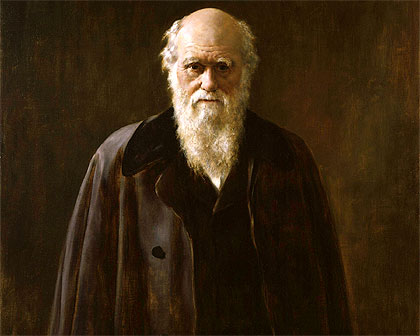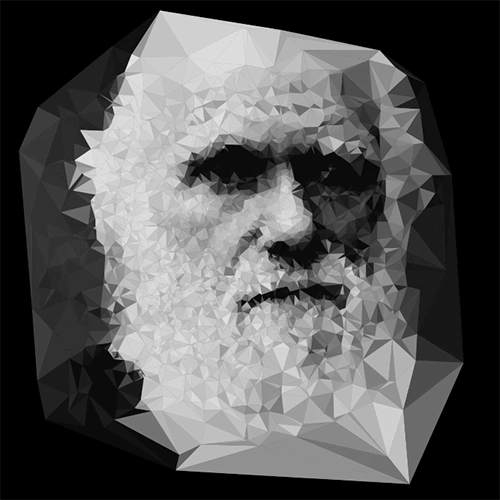Charles Robert Darwin was born in Sherewsbury on 12 February 1809. He was the second son of Robert Waring Darwin, physician fame in the town, and Susannah Wedgwood, daughter of a famous ceramist Staffordshire, Josiah Wedgwood, promoter construction a canal to link the region with the coast and member of the Royal Society. His paternal grandfather, Erasmus Darwin, was also a physician and important known naturalist, author of a long poem in heroic couplets presenting an allegory of sexual Linnaean system of classification of plants, which was a literary success of the moment; otherwise, his theories about the inheritance of acquired characteristics were destined to fall into disrepute work precisely his grandson.

>>In addition to his brother, five years older than him, Charles also had three older sisters and one younger sister. After the death of his mother in 1817, his education took place in a local school; in his old age he remembers his experience there as the worst thing that could happen to their intellectual development.<<
Ever since childhood he showed a taste for natural history he considered innate and, especially, a big hobby of collecting things (shells, stamps, coins or mineral), the kind of passion "that leads one to become a systematic naturalist, an expert, or a miser.
-Darwin in October 1825 entered the University of Edinburgh to study medicine by decision of his father, who always remembered with affection and admiration, and a psychoanalytical connotations not without respect; Darwin hypochondria in adulthood always combine distrust of doctors with unlimited faith in instinct and methods of treatment of his father...

The young Charles, however, did not get interested in the race; repugnance to surgical operations and the inability of teachers to capture their attention, came to join the growing conviction that the inheritance of his father would allow him a comfortable subsistence without a profession like doctor.
So, after two years, his father, ready to prevent becoming a lazy son of the family, proposed an ecclesiastical career. After resolving the scruples themselves about their faith, Darwin gladly accepted the idea of becoming a rural clergyman and, in early 1828, having refreshed his classical training, he entered Christ's College, Cambridge.
In Cambridge, as before in Edinburgh and at school, Darwin lost time so it refers to the study, often neglected to satisfy his passion for hunting and riding, activities occasionally culminating in dinners with friends of which Darwin kept a memory (possibly exaggerated) as genuine revelry. Yet his indolence was tempered by the acquisition of two separate tastes in painting and music, of which he himself was surprised later, given his complete lack of musical ear and his inability to drawing (a "bad irremediable" that along with his practical ignorance of dissection, he represented a disadvantage for his later works).
In July this year he began writing his first notebook on their new insights about the "transmutation of species" which is were imposed to reflect on their own observations on the classification, affinities and instincts animals, and also as a result of an exhaustive study of all such information could be collected on the changes experienced by species of plants and domestic animals due to the intervention of breeders and horticulturists.
His research, conducted on the basis of "true Baconian principles", soon convinced him that the selection was the key to human success in obtaining useful improvements in breeds of plants and animals. The possibility that the same selection act on living organisms in a natural state was made clear when in October 1838 he read "as a hobby" the An Essay on the Principle of Population Thomas Malthus.

"Emma Darwin was the cousin and wife of english naturalist charles Darwin with whom he had ten children."




